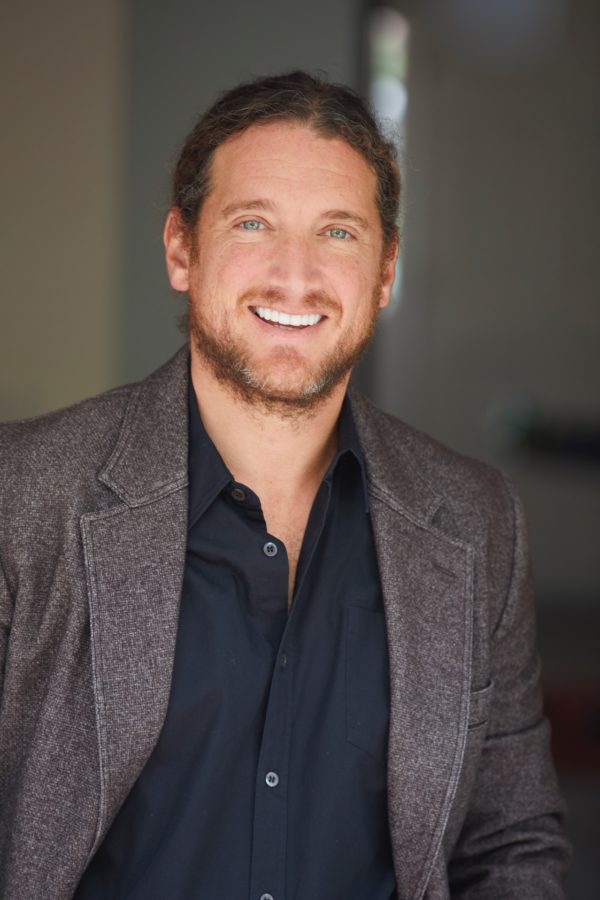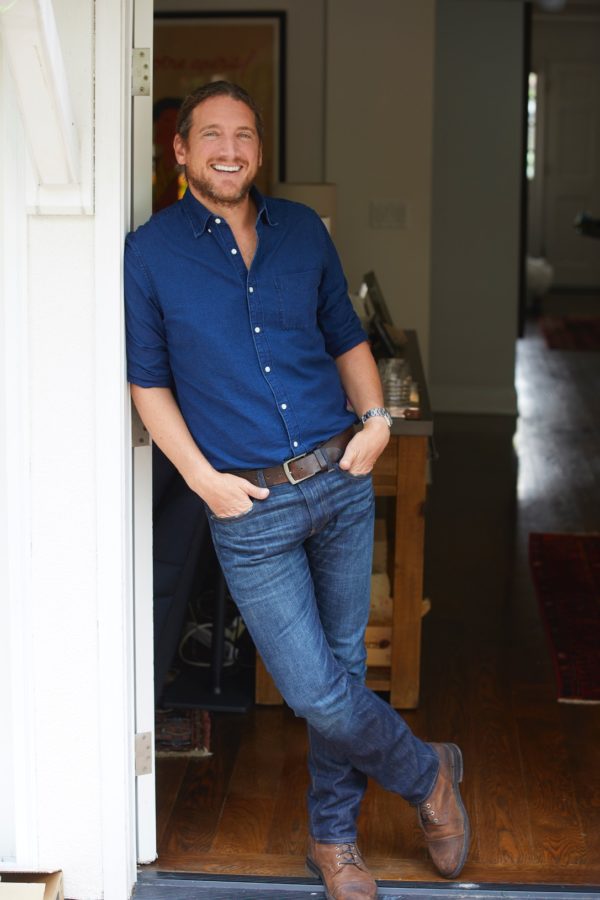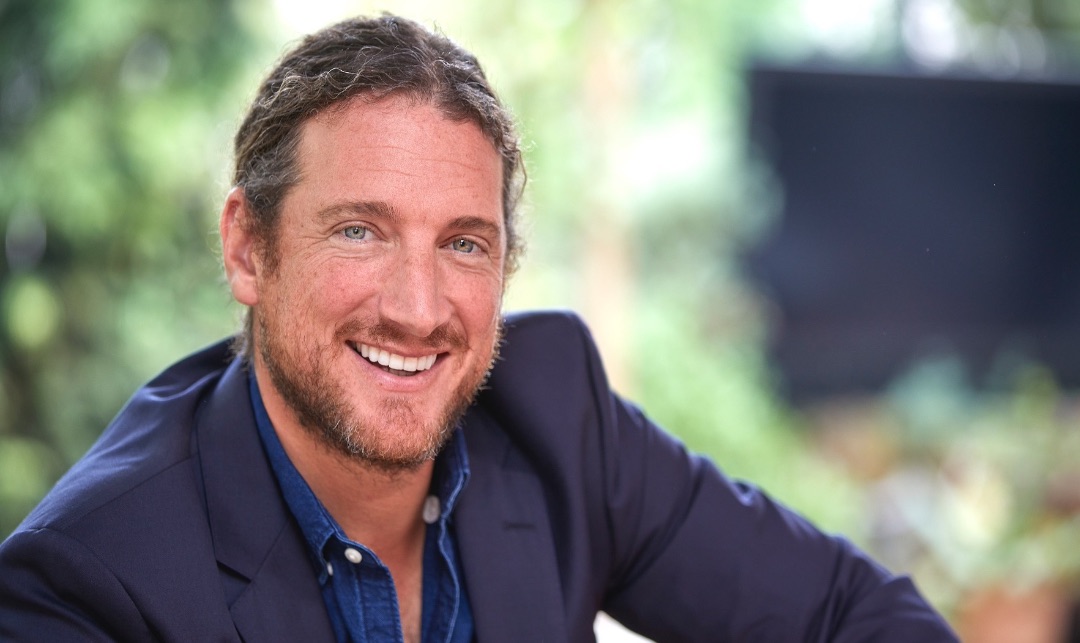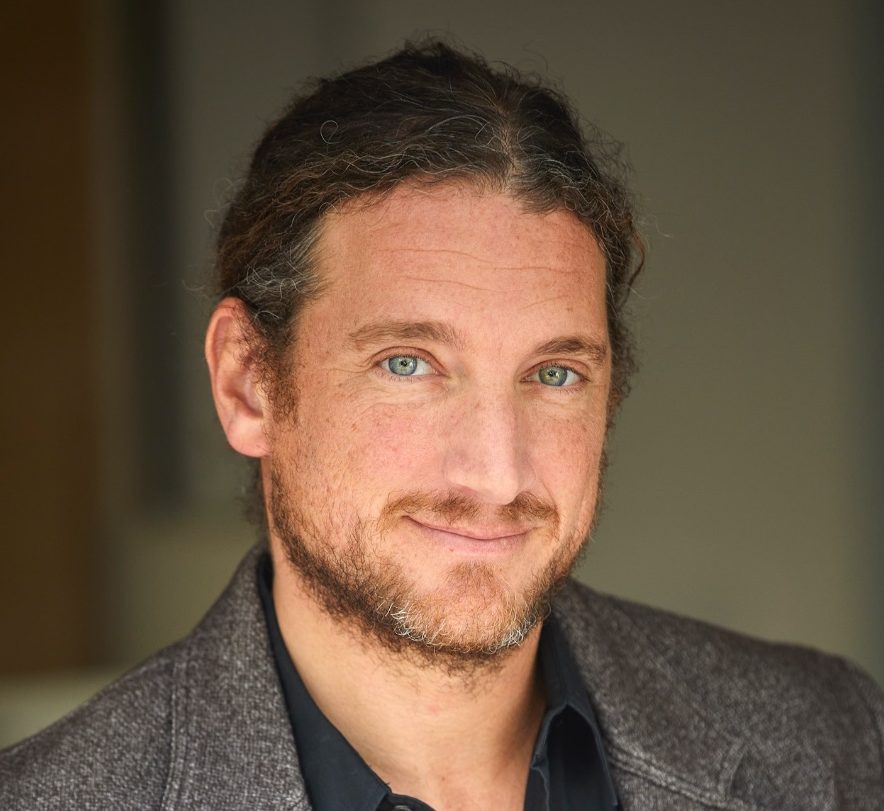Neil Jacobson spent 17 years ascending through the music business and had the job he’d craved since he was a teenager: president of Geffen Records. But now, at 43, he’s making a turn—and feels like he’s just getting started. Born and raised on Long Island, the son of an accountant and a baby-clothing wholesaler, he was a terrible musician but a masterful music businessman. He worked as a caddy and a carpet salesman before landing at Interscope Records, where he was mentored by the legendary leaders there, including founder Jimmy Iovine and his successor, John Janick. Four years ago, Jacobson became president of Geffen Records (which like Interscope is part of Universal Music Group), the job he’d wanted most of his life. Then he announced late last year that he was starting Hallwood Media, a business devoted to managing music writers and producers. He talked to CSQ about what brought him to this new path.
WHAT MADE YOU WANT TO START YOUR OWN OPERATION?
I had a wonderful run at Interscope and Geffen. It was my dream job, and I was able to do all of the most amazing things I could ever dream of, and I was able to work with the most incredible artists from the start. But I had this hunkering to start my own business, and to start something that’s mine.
I watched how Jimmy Iovine ran Interscope. It’s impossible to imagine a business more totally run by one man. Jimmy is one of my great mentors, an inspiration. He taught me about staying close to writers and producers. And then I watched John Janick, who is one of my close friends, who has a totally different style: his selflessness, his attention to detail. He is one of the fairest people I have ever met. And now I have that to go into my business in a wide-open field in what’s going to be a transformative time in music.
I ran the producer-writer management division at Interscope. As that division continued to do really well, it required more and more of my attention. Having my own thing continued to be something that was on my mind. John knew that this was something I wanted to do. He let me buy it and spin it off into my own business. I had a lot of success with Geffen. We had DJ Snake and Avicii. I actually signed Justin Lubliner who started Darkroom Records, Billie Eilish’s record label. I felt like I had done my part.
DID YOU SEE A NEED IN THE MARKET FOR WHAT YOU ARE DOING WITH HALLWOOD?
I think the writer-producer management sector is really underserved. Understanding how to make a record sound incredible is a really important skill, to understand how the studio works, how a session works. They’re kind of the support to the whole community. It’s much like the director in film.
Our business is built to take everyone from a beginning producer to a producer that might have come up with an artist and is now ready to scale and expand to the rest of the community.
IT’S AN UNFORTUNATE TIME TO HAVE STARTED A BUSINESS GIVEN THE ECONOMIC CONDITIONS AND THE PANDEMIC SHUTDOWN, BUT IT SEEMS LIKE YOU PICKED THE RIGHT PART OF THE MUSIC BUSINESS TO BE IN AT THE MOMENT.
It’s an incredibly tough time for everyone. It’s just luck, it wasn’t the reason I chose it, but the thing is that my business isn’t really rooted in live music. It has gone way better than I planned, because there are so many artists that are in the studio or on Zoom working now. The music business is two domains, all things flow through them: the concert and the studio. My true passion and my true love—the most amazing part of the music business and the magic—is the recording studio.

HOW DID YOU KNOW AT SUCH A YOUNG AGE THAT YOU WANTED TO BECOME A RECORD EXECUTIVE?
When I was 17, I had barely been through puberty; I looked 11. I was a golf caddy at a club called Deepdale. This guy pulls up in a Bentley. He’s wearing a fedora, perfect white hair, a cigar—he just looked like a million dollars. They said, “He’s the biggest tipper.” This dude is the coolest dude ever. They said he was Charles Koppelman, a record label executive. I told my dad, “I’m going to be a record executive.” I was a huge fan of Nirvana, a huge fan of Guns N’ Roses. They were on Geffen Records, which was huge at the time, so I said “I want to be president of Geffen Records.”
I’VE READ YOU WERE DIAGNOSED WITH ATTENTION DEFICIT HYPERACTIVITY DISORDER (ADHD) AS A CHILD. WAS THAT AN ACCURATE ASSESSMENT?
I am full-on ADHD. I will occasionally go back to Wheatley, where I went to school, and I’ll speak to ADHD kids and their parents. Just to say that it’s really hard, and it’s a really hard thing to parent around. I try to be, hopefully, a messenger to say your kids can thrive. I barely graduated high school. I failed out of college. Yet a lot of my ADHD has helped me in the business world.
Running a big company is a lot of work. Going from one thing to the next to the next, you have to bounce around from thing to thing to thing. My ability to jump from one thing to the next was really a benefit.
YOU ATTENDED BERKLEE SCHOOL OF MUSIC. DID YOU HAVE ANY ASPIRATION TO BE AN ARTIST, AS SO MANY ON THE BUSINESS SIDE DID AT SOME POINT?
No, I am the worst musician you have ever heard. I am the worst musician to ever get into Berklee. I am horrific. I can barely bang out a song on the piano. I play the drums. My idea was, if I went to Berklee and was around musicians, I would know how it worked. My dad, all he wanted me to do was whatever I loved. While it was a lot of money, my dad said if I got in, he would pay for it.
I practiced eight hours a day, seven days a week my senior year [of high school]. I had never worked that hard at anything in my life. I got rejected, but they did allow me to do the five-week summer program. I just killed it in the summer program, and I auditioned that September and got in.

And then I proceeded to start a record label, start managing bands, hustling and shaking. The company I started didn’t last, and I became a wholesale salesman for a carpet company. You sold to designers and architects, so to serve them you got them anything they needed. That was one of the most important factors to my success, to serve an account. I learned what it is to not sell, to be there for them. So, whenever they needed a designer, needed to buy carpet, they would come to me. And that’s something I try to teach other people that come to my desk. I’m a great salesman and all that stuff. But I am here to serve.
At Hallwood Media, I want this company to be a service business. I want us to be the Endeavor of the music business. I really look up to what Patrick Whitesell and Ari Emanuel are doing there. These guys are so sharp and so on it, that they take fierce care of their clients. Patrick has been Matt Damon’s and Ben Affleck’s agent for 20 years. They have to do a perfect job, or their clients can leave them.
TECH HAS KNOCKED THE MUSIC WORLD FOR A LOOP IN THE LAST 20 YEARS. WHAT DIRECTION DO YOU THINK IT’S HEADED IN?
I think VR is going to be the next thing in music. I think music is what’s going to break VR—not movies, not video games, just like it was with streaming. I think we’re a few years away from when the bandwidth will get to the point where you’re basically wearing Oakley sunglasses that offer a mind-blowing musical experience.














































